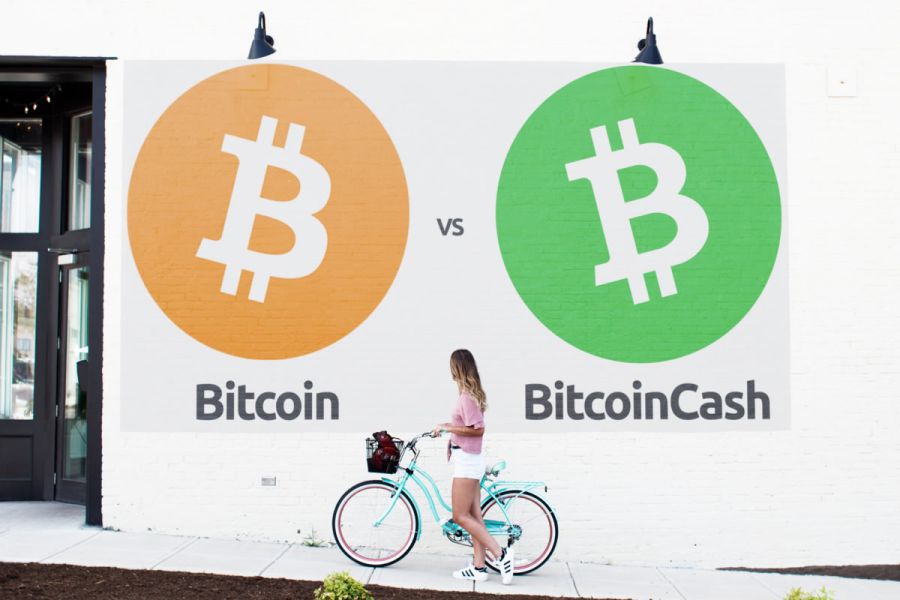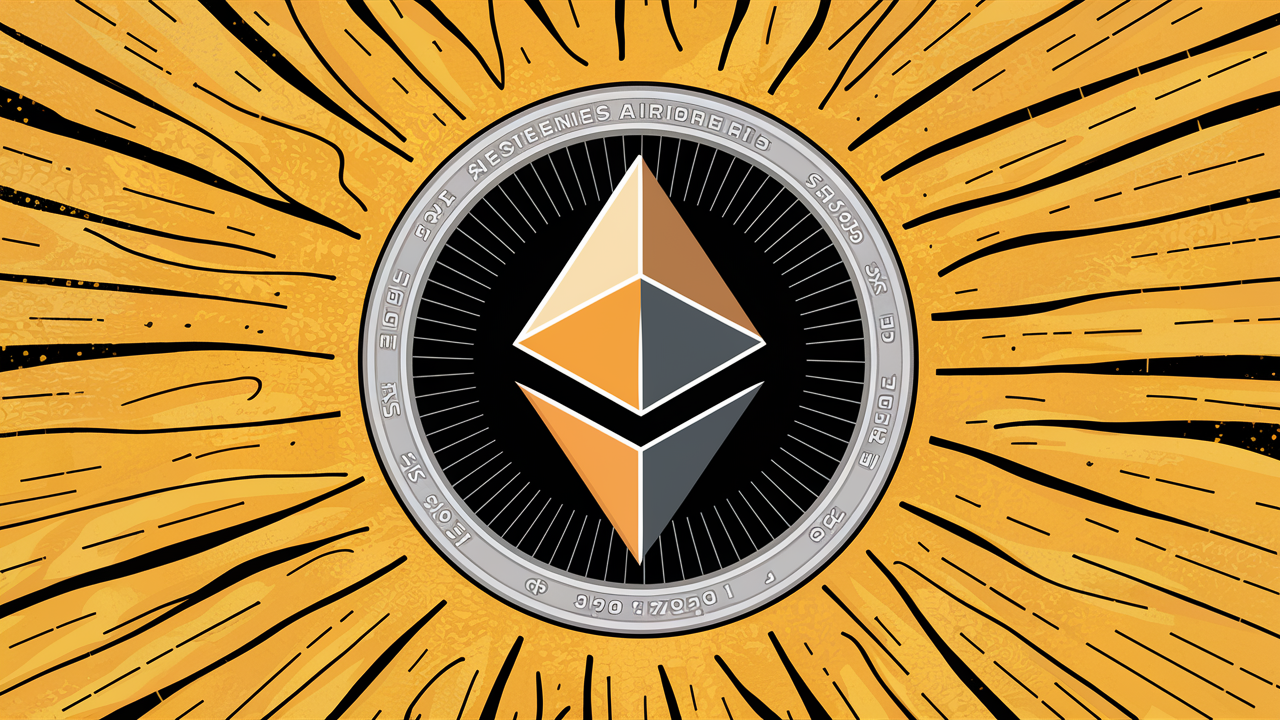Bitcoin Cash Vs. Bitcoin: What is the difference?
Does Bitcoin cash have advantages over Bitcoin? If you’re new to the crypto world, you might not even know what Bitcoin Cash is. Basically, Bitcoin Cash (BCH) is a cryptocurrency branch created from the original Bitcoin currency. It came into being in August 2017 after a fork on the original blockchain by miners who weren’t happy with the way things were going. There are also some important differences between Bitcoin and Bitcoin Cash, and you should consider them if you’re thinking about investing in either one.
What is Bitcoin Cash?
Bitcoin Cash is the continuation of the Bitcoin project as peer-to-peer digital cash. It is a fork of the Bitcoin blockchain ledger, with upgraded consensus rules that allow it to grow and scale. Bitcoin Cash is a distributed worldwide decentralized digital money.
The idea behind bitcoin cash was to increase the block size from one megabyte to eight megabytes to solve bitcoin’s scaling issues. It was originally a fork of the bitcoin blockchain that resulted in a separate cryptocurrency.
The differences between Bitcoin and Bitcoin Cash
So, what’s the difference between Bitcoin and Bitcoin Cash? And how is Bitcoin Cash different from regular Bitcoin? Bitcoin Cash is the new name for the original Bitcoin currency which was split in two in August 2017. The new currency was created by a group of bitcoin miners who were unhappy with how things were going in the Bitcoin world. They mined a new form of the Bitcoin currency called Bitcoin Cash (BCH) and the result was a new currency that was released into the market as a free-for-all – a free-for-all meaning that anybody could send Bitcoin Cash to anybody else. It was a fascinating experiment in the market because Bitcoin Cash gained in value because of the free-for-all nature of the market.
The idea behind the creation of Bitcoin Cash is that a split occurred on the original Bitcoin network. This split, and a subsequent reorganization of the community, was what has come to be called the fork. The original Bitcoin blockchain that is accepted by the general public contains the Bitcoin blockchain and the Bitcoin cash blockchains. The implications of a fork are that it could be a “bump” to the value of the coins.
The power of faster transactions
One of the biggest improvements made to Bitcoin from Bitcoin Cash is that its miners can process transactions even faster. This is because the Bitcoin protocol was designed to only allow 7 transactions per second. Meanwhile, Bitcoin Cash can support a transaction rate of up to many times faster than Bitcoin. If you want to transfer funds more frequently, you’ll want to go for Bitcoin cash, rather than Bitcoin currency.
Bitcoin can handle seven transactions per second on average, while Bitcoin Cash can process 116 transactions per second. To put this in perspective, Visa handles 24,000 transactions per second.
Possible negative aspects of Bitcoin Cash
Bitcoin Cash has been plagued by a series of problems. It’s been facing challenges with a lack of hash power, and Bitcoin Cash detractors criticize the currency for its mining, development, and low price.
There have been a lot of problems with Bitcoin Cash, including an inability to process transactions for over a day, a bug that caused some users to lose money, and a major mining pool taking a large amount of the network’s computing power offline for over a day. all of these problems seem to be left behind long ago and lately, the coin is regaining momentum and value due to its fast and cheap transactions ($0.01 each).
Mining BCH
There are three major problems associated with Bitcoin Cash (BCH) mining. The first problem is that mining BCH is an expensive and power-hungry process. The second problem with BCH mining is that it can be very slow. The third problem is that it can be very difficult to actually mine BCH.
While Bitcoin uses SHA-256 as its proof-of-work (PoW) algorithm, Bitcoin Cash uses a different mining algorithm called “Equihash”. It relies on randomness, and the only way to mine it profitably is by using specialized hardware. This mining algorithm “Equihash” was initially thought to be ASIC-resistant. However, Bitmain released the Antminer Z9 mini, an ASIC miner capable of mining Equihash 960 Sol/s, which is 4 times faster than the previous model, the Antminer Z9.
Development
The BCH development team has had some problems. Some of them were perhaps caused by the inexperience of the developer team, others because according to some suggestions, the network grew at an excessive speed generating development problems for this reason.
Also, in 2018 there was the last reduction of the Bitcoin Cash block reward, known also as halving, which has been met with criticism. With higher processing times, BCH might no longer be as efficient as it used to.
The lower the reward per block, the more valuable Bitcoin Cash will be. However, user-set demand does not increase linearly and is unlikely to be met by such a drastic decline in supply. The price of Bitcoin Cash is predicted to rise significantly compared to other digital assets.
Fortunately, the project’s core team has already begun progress on several improvements to address this problem and make the network more accessible. Solutions to address these problems have already begun, and we should expect conditions to improve dramatically in the near future.
Conclusion
We do not believe that investors have to choose between one and the other. All investors are free to trade both simultaneously. If Bitcoin Cash becomes more valuable, investors who hold it long-term will do well too.
Lately, BCH is offering certain advantages at least in terms of transfers, which can be made at an exceptional price of $0.01, and also in terms of their speed. Its price is also appreciating strongly, and it seems, at least in recent times, to have put aside the instabilities that the network had initially shown.
CryptoPress
Does Bitcoin cash have advantages over Bitcoin? If you’re new to the crypto world, you might not even know what Bitcoin Cash is. Basically, Bitcoin Cash (BCH) is a cryptocurrency branch created from the original Bitcoin currency. It came into being in August 2017 after a fork on the original blockchain by miners who weren’t happy with the way things were going. There are also some important differences between Bitcoin and Bitcoin Cash, and you should consider them if you’re thinking about investing in either one.
What is Bitcoin Cash?
Bitcoin Cash is the continuation of the Bitcoin project as peer-to-peer digital cash. It is a fork of the Bitcoin blockchain ledger, with upgraded consensus rules that allow it to grow and scale. Bitcoin Cash is a distributed worldwide decentralized digital money.
The idea behind bitcoin cash was to increase the block size from one megabyte to eight megabytes to solve bitcoin’s scaling issues. It was originally a fork of the bitcoin blockchain that resulted in a separate cryptocurrency.
The differences between Bitcoin and Bitcoin Cash
So, what’s the difference between Bitcoin and Bitcoin Cash? And how is Bitcoin Cash different from regular Bitcoin? Bitcoin Cash is the new name for the original Bitcoin currency which was split in two in August 2017. The new currency was created by a group of bitcoin miners who were unhappy with how things were going in the Bitcoin world. They mined a new form of the Bitcoin currency called Bitcoin Cash (BCH) and the result was a new currency that was released into the market as a free-for-all – a free-for-all meaning that anybody could send Bitcoin Cash to anybody else. It was a fascinating experiment in the market because Bitcoin Cash gained in value because of the free-for-all nature of the market.
The idea behind the creation of Bitcoin Cash is that a split occurred on the original Bitcoin network. This split, and a subsequent reorganization of the community, was what has come to be called the fork. The original Bitcoin blockchain that is accepted by the general public contains the Bitcoin blockchain and the Bitcoin cash blockchains. The implications of a fork are that it could be a “bump” to the value of the coins.
The power of faster transactions
One of the biggest improvements made to Bitcoin from Bitcoin Cash is that its miners can process transactions even faster. This is because the Bitcoin protocol was designed to only allow 7 transactions per second. Meanwhile, Bitcoin Cash can support a transaction rate of up to many times faster than Bitcoin. If you want to transfer funds more frequently, you’ll want to go for Bitcoin cash, rather than Bitcoin currency.
Bitcoin can handle seven transactions per second on average, while Bitcoin Cash can process 116 transactions per second. To put this in perspective, Visa handles 24,000 transactions per second.
Possible negative aspects of Bitcoin Cash
Bitcoin Cash has been plagued by a series of problems. It’s been facing challenges with a lack of hash power, and Bitcoin Cash detractors criticize the currency for its mining, development, and low price.
There have been a lot of problems with Bitcoin Cash, including an inability to process transactions for over a day, a bug that caused some users to lose money, and a major mining pool taking a large amount of the network’s computing power offline for over a day. all of these problems seem to be left behind long ago and lately, the coin is regaining momentum and value due to its fast and cheap transactions ($0.01 each).
Mining BCH
There are three major problems associated with Bitcoin Cash (BCH) mining. The first problem is that mining BCH is an expensive and power-hungry process. The second problem with BCH mining is that it can be very slow. The third problem is that it can be very difficult to actually mine BCH.
While Bitcoin uses SHA-256 as its proof-of-work (PoW) algorithm, Bitcoin Cash uses a different mining algorithm called “Equihash”. It relies on randomness, and the only way to mine it profitably is by using specialized hardware. This mining algorithm “Equihash” was initially thought to be ASIC-resistant. However, Bitmain released the Antminer Z9 mini, an ASIC miner capable of mining Equihash 960 Sol/s, which is 4 times faster than the previous model, the Antminer Z9.
Development
The BCH development team has had some problems. Some of them were perhaps caused by the inexperience of the developer team, others because according to some suggestions, the network grew at an excessive speed generating development problems for this reason.
Also, in 2018 there was the last reduction of the Bitcoin Cash block reward, known also as halving, which has been met with criticism. With higher processing times, BCH might no longer be as efficient as it used to.
The lower the reward per block, the more valuable Bitcoin Cash will be. However, user-set demand does not increase linearly and is unlikely to be met by such a drastic decline in supply. The price of Bitcoin Cash is predicted to rise significantly compared to other digital assets.
Fortunately, the project’s core team has already begun progress on several improvements to address this problem and make the network more accessible. Solutions to address these problems have already begun, and we should expect conditions to improve dramatically in the near future.
Conclusion
We do not believe that investors have to choose between one and the other. All investors are free to trade both simultaneously. If Bitcoin Cash becomes more valuable, investors who hold it long-term will do well too.
Lately, BCH is offering certain advantages at least in terms of transfers, which can be made at an exceptional price of $0.01, and also in terms of their speed. Its price is also appreciating strongly, and it seems, at least in recent times, to have put aside the instabilities that the network had initially shown.
© 2024 Cryptopress. For informational purposes only, not offered as advice of any kind.
Latest Content
- Crypto Market Update: April 25, 2024
- Renzo’s Restaked ETH Depegs to $700: DeFi Platforms Gearbox and Morpho Face Liquidations
- Crypto Market Update: Insights and Trends for April 23, 2024
- On April 24, the $RTF Token from Oleksandr Usyk’s READY TO FIGHT Project Will be Listed on WhiteBIT
- Crypto Market Update: Key Trends and Insights for April 22, 2024
Related
- Guide to Cryptocurrencies: What is a Fork? In this guide, everything you need to know about a cryptocurrency fork....
- Crypto Events Archive A growing list of past crypto and blockchain events from around the world. Conferences, workshops, meetups, hackathons, conferences....
- Ethereum Ethereum price Ethereum is an open-source platform, designed to let people create applications that run exactly as programmed without any chance of fraud, censorship, or third-party interference. Basic Info Name: EthereumSymbol: ETHInitial release: 2015Authors, Developers: Vitalik ButerinConsensus algorithm: Proof-of-Work (PoW)Website: https://ethereum.org/ Ethereum Ledger...
- Bitcoin’s carbon footprint There has been a lot of talk about the carbon footprint of Bitcoin. In this article, we will examine where Bitcoin’s power consumption comes from, and potential ways to mitigate the power hunger of Bitcoin. More than a literal footprint,...




